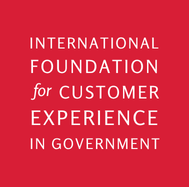Iterative Building for Effortlessness
The organization shall build a service that is simple, intuitive to use and effortless across all channels through an iterative approach with a full understanding of the tools and systems required to build, host, operate, and measure the new service design and how to adopt and adapt them sustainably and efficiently.
Building for effortlessness requires a full understanding of the problem statement of the current service, alongside being aware of customers, including their demographics, skills, and backgrounds, the types of digital and non-digital environments that they may use to encounter a service, any forms of assistance required for their support, as well the predicted CX of the future.
Once the solution has been selected, it is then necessary to understand the data, storage, and software requirements, integration dependencies, intellectual property rights, and cost of the technology. Building an awareness of the technologies that can be used during the development process, involves identifying appropriate potential technological solutions to the design problem. Recommended criteria for choosing a solution include efficiency in responding to service problems, the potential to make future improvements without constraints, and employing solutions that reuse or extend upon existing technologies.
It is important to record and monitor these insights and act on critical elements in fast feedback loops to incrementally develop the service output. Such clear and transparent communication allows for better use of prototyping and other iteration methods that can feed into generating more effective minimum viable products and a final service solution.
